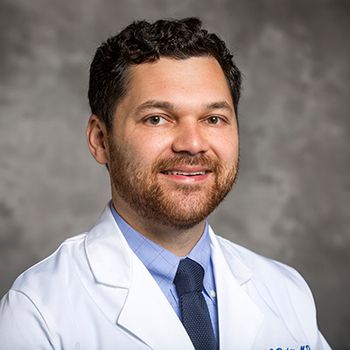
Oncology NEWS International
- Oncology NEWS International Vol 17 No 9
- Volume 17
- Issue 9
In elderly with early breast ca, stick with standard chemo
CHICAGO-In the adjuvant setting, capecitabine (Xeloda) proved inferior to standard chemotherapy in older women with early-stage breast cancer, according to study results from the University of Vermont College of Medicine, Burlington.
ABSTRACT: ‘Unfortunately, the oral regimen was just not as good.’
CHICAGO-In the adjuvant setting, capecitabine (Xeloda) proved inferior to standard chemotherapy in older women with early-stage breast cancer, according to study results from the University of Vermont College of Medicine, Burlington.
“In our study, standard chemotherapy was superior to capecitabine for risk-free and overall survival, especially in estrogen-receptor-negative tumors. We believe this is a very important study. It is one of the larger trials focusing on older patients, who are under-represented in clinical trials. Unfortunately, the oral regimen was just not as good,” said principal investigator Hyman Muss, MD, at ASCO 2008 (abstract 507). Dr. Muss is professor of medicine at the University of Vermont.
Capecitabine is approved for metastatic or recurrent breast cancer in combination with other agents. The hypothesis of this study was that capecitabine might be an equally effective but less toxic agent in the older age group, but the study failed to show this. In December 2006, enrollment stopped after the first analysis showed that capecitabine was likely to be inferior.
The randomized North American Breast Cancer Intergroup CALGB/CTSU 49907 study included
633 women with early-stage breast cancer aged 65 or older. After resection, patients were randomized to receive standard chemotherapy with CMF (n = 132) or AC (n = 183) per physician choice or capecitabine 1,000 mg twice daily (n = 299), for six cycles, followed by endocrine therapy in the case of hormone-receptor positivity.
At a median follow-up of 2.4 years, patients receiving capecitabine were more than twice as likely to relapse or die. Recurrence-free survival was 89% with CMF/AC and 80% with capecitabine (P = .0009). Overall survival was 93% vs 88% (P = .019), Dr. Muss reported.
In a multivariate analysis, the hazard ratio for recurrence was 2.09 for treatment with capecitabine (P = .0006), which was higher than any other factor except ER status. ER-negativity conferred a hazard ratio of 3.04 (P < .0001). For mortality, the hazard ratios were 1.85 (P = .019) for capecitabine treatment and 2.62 (P = .0002) for ER-negative status.
As expected, adverse events were significantly greater with the chemotherapy arms, although there were two drug-
related deaths on capecitabine.
Closing a chapter on adjuvant chemo therapy?
“The study result is very likely correct,” commented John Crown, MB Bch, of the Irish Clinical Oncology Research Group, Dublin. “Single-agent capecitabine is inferior to conventional polychemotherapy in the adjuvant treatment of older patients with early breast cancer. It is less likely that the result is due to a random play of chance.”
Treatment decisions for older patients should be based on available data and on the patient’s clinical status, he said.
Dr. Crown also suggested that adjuvant chemotherapy studies in the elderly should not be an investigational priority, but that elderly patients should be enrolled on biological studies or trials of targeted therapies.
“I think that we are now closing a chapter on some part of the adjuvant chemotherapy movement,” he concluded.
Articles in this issue
over 17 years ago
Japanese team discovers more cancer falloutover 17 years ago
Panel pans FDG-PET for new Medicare oncology coverageover 17 years ago
Sen. Kennedy's brain tumor puts spotlight on new treatmentover 17 years ago
Precise resection in colon cancer may boost survivalover 17 years ago
Payer’s budget to get right targeted drug to right patientover 17 years ago
PET brings treatment changes in majority of colon ca casesover 17 years ago
High death rate brings prostate ca vaccine trial to a haltover 17 years ago
Radiofrequency ablation eliminates nondysplastic BEover 17 years ago
Childhood cancer research gets $30 million from fedsNewsletter
Stay up to date on recent advances in the multidisciplinary approach to cancer.
Related Content



Navigating Hypofractionation, ADCs, and AI in Modern Radiation Oncology








































